Our Projects
Water Treatment Technologies
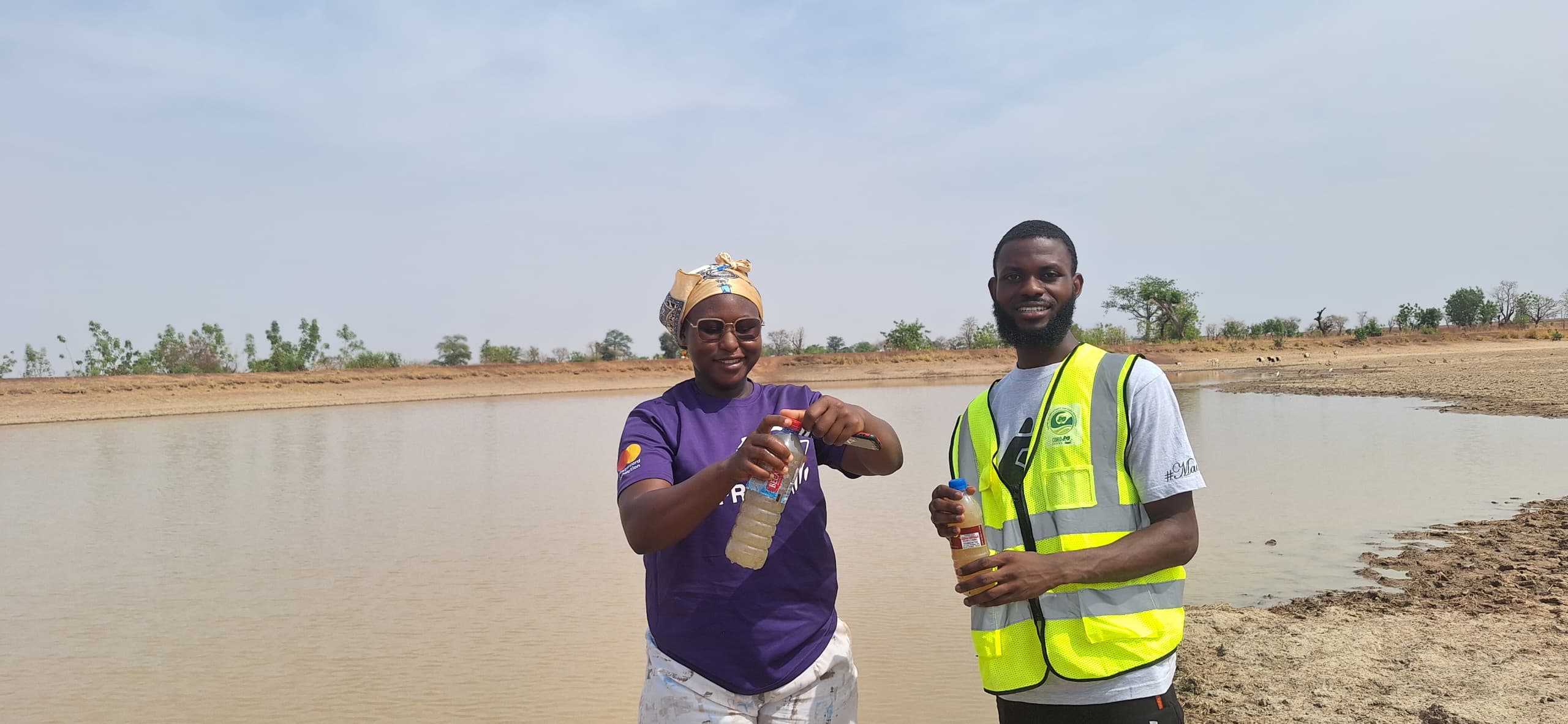
The lack of clean drinking water and sanitation systems is a severe public health concern in Ghana, contributing to 70% of diseases in Ghana. Widespread use of plastic drinking water sachets due to lack of available potable water has also led to increased plastic pollution, often polluting water bodies, choking stormwater drains and causing death of livestock. The country’s gold mining industry has polluted 60% of Ghana’s waters. CORD Ghana in collaboration with World Vision Ghana to undertake a training of 15 communities to engagement households on water quality and equip them with water treatment technology and train households on the construction of inclusive (e.g disability friendly) hand washing facilities in the East Gonja APs.
- All 15 communities have been equipped with knowledge on water treatment.
- Every household adopt to water treatment technologies for household to reduce the rate of diseases.
- All 15 communities trained on the construction of hand washing facilities.
To train households on the construction of inclusive (e.g disability friendly) hand washing
- facilities in 7 Communities in the East Gonja AP
- PARTNERS: WORLD VISION INTERNATIONAL GHANA
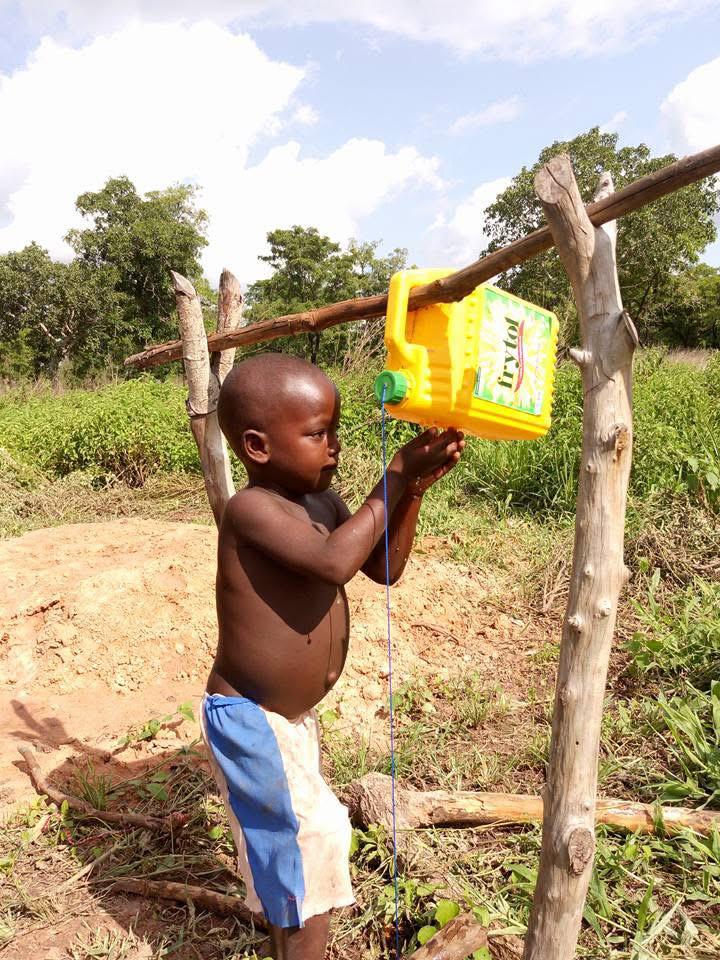
Hand washing is considered as one of the most effective hygiene promotion activities for public health in developing countries. Hand washing with soap (HWWS) has been found to be more effective in removing germs than hand washing with water alone and yet hand washing with soap is seldom practiced.
A large population, especially in rural Ghana, suffer from diseases and lose their lives due to lack of toilets/hygienic toilets, lack of awareness of proper hand hygiene, and ignorance about concepts of wastewater management. The underlying problem of containing faecal-oral transmission is of prime importance, especially with the swathes of underprivileged populations in rural Ghana who have little or no access to toilets, soap, and/or clean water.
CORD Ghana engaged communities thirteen (13) in East Gonja on practices on construction of disability friendly hand washing facilities, education on good hygiene to change their behavioral pattern and improve health of households especially children.
Green Voices Project
- PARTNERS: RAAM FOUNDATION AND WOMEN FOR AFRICA FOUNDATION
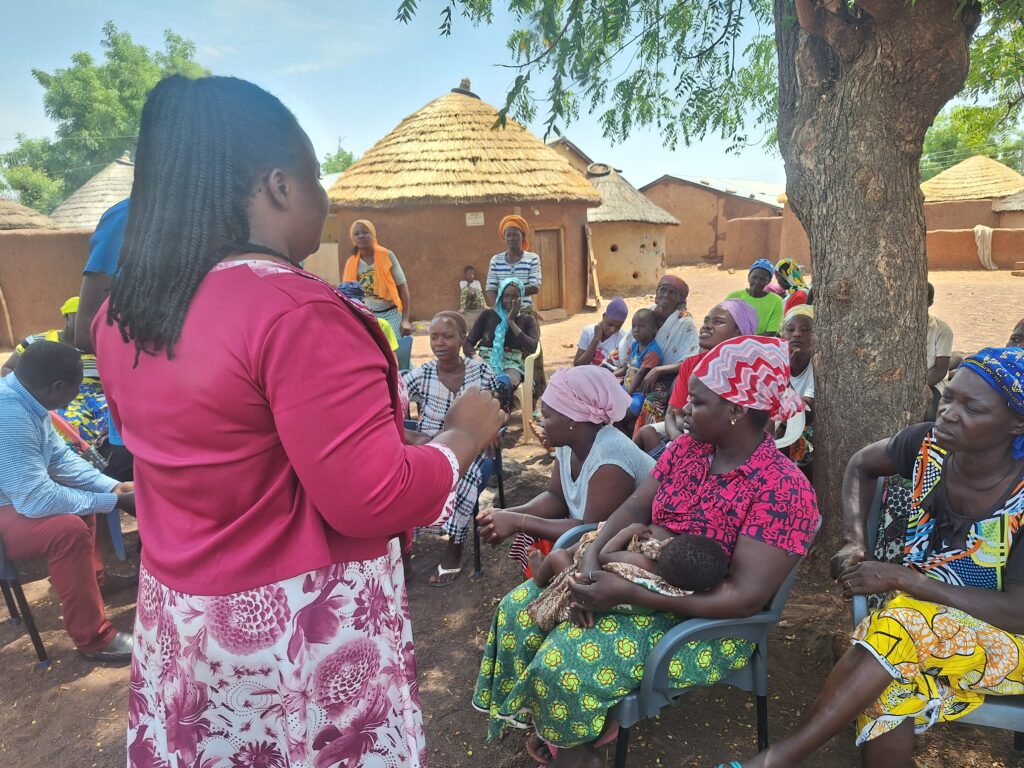
Despite the critical contributions of women to the agricultural sector, the performance of the agricultural industry in many developing countries, especially the Northern part of Ghana, is suboptimal. This is partly attributed to the fact that women, acting as essential resources in agriculture and the rural economy through their roles as farmers, laborers, and entrepreneurs, consistently face more severe constraints than men in accessing productive resources. Until all stakeholders recognize and build upon the contributions of women in the agricultural sector, taking concrete steps to alleviate these constraints, the strengthening and acceleration of agricultural development, economic growth, and food security will remain elusive.
Against this backdrop, the project aims to level the agricultural playing field for rural and poor female farmers. It seeks to reduce gender-specific barriers in farming and the agricultural value chain, empowering women to reach their highest economic potential and make substantial contributions to addressing global food insecurity, improving their health status and adapt climate change mitigation and adaptation approaches.
Formation of Savings for Transformation Groups(S4T)
- PARTNERS: WORLD VISION GHANA, WOMEN FOR AFRICA FOUNDATION
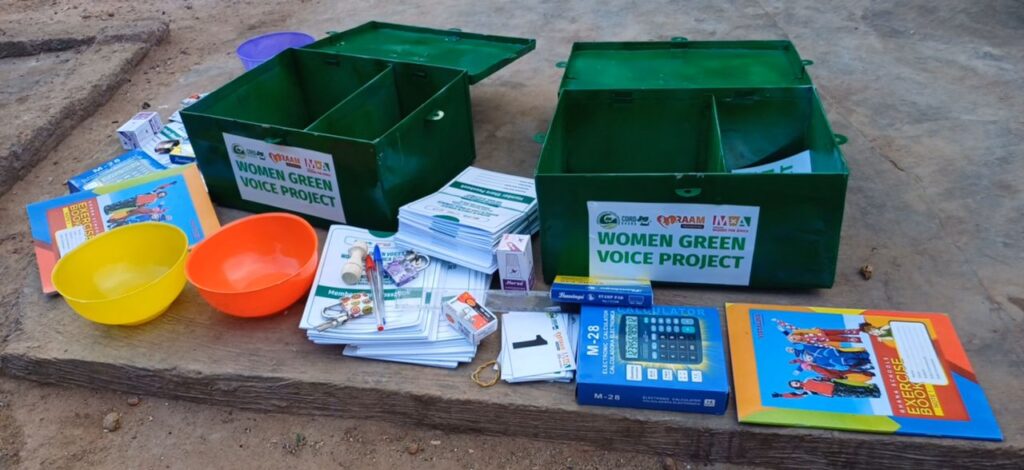
S4T’s have proven to be very effective in accelerating growth and building local capacity. VSLA members have access to highly responsive and safe financial services, and this enables them to upscale economic activities, improve household health and welfare, acquire business skills, educate their children, and improve the quality of their social lives both within the family and the surrounding community. Poor and less educated people are easily intimidated by the formal, lengthy and complicated procedures at banks, just as many people distrust the banks because of the nontransparent pricing structures. It’s on this practice that our CORD Ghana engaged 17 communities and formed 154 savings groups in West Gonja, Savelugu District of Ghana. The Village Savings and Loan Association (VSLA) model creates self-managed and self-capitalised savings groups that use members’ savings to lend to each other. This project transformed marginalized communities worldwide, mobilizing local savings, which provide members with a means to cope with emergencies, help to manage household cash-flow, build a capital base and, crucially, re-build social networks, solidarity and trust.
Improving Child Nutrition and Wellbeing
- PARTNERS: WORLD VISION GHANA
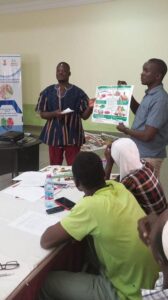
Objectives of the project:
1. To assess the current state of child nutrition in [target area/community]
2.To educate parents, caregivers, and children about the importance of proper nutrition
3. To provide resources and support for healthy eating habits
4. To monitor and evaluate the impact of the project on child health outcomes
Components:
1. Nutrition Education:
– Workshops for parents and caregivers
– Interactive sessions for children
– Distribution of informative materials (brochures, posters, etc.)
Healthy Food Access:
– Collaboration with local food banks or meal programs
– Establishment of community gardens or cooking classes
Health Monitoring:
– Regular check-ups with healthcare professionals
– Tracking of growth and development metrics (height, weight, BMI, etc.)
Community Engagement:
– Partnerships with local schools, community centers, and places of worship
– Events and campaigns to promote the project and encourage participation
Deliverables:
- A comprehensive report on the current state of child nutrition in [target area/community]
- A nutrition education curriculum for parents, caregivers, and children
- A directory of local resources for healthy food access
- A monitoring and evaluation framework to track project impact
GREEN SCHOOL INITIATIVE (GSI)
- PARTNERS: Network of Youth for Climate Action (NYCA)
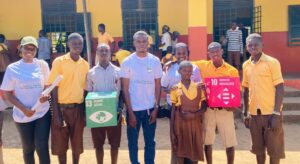
Green school Initiative objective is to reduce the environmental footprint of our campus and promote sustainable practices among students, faculty and staff.
Initiatives under the program as but not limited to Recycling program, Energy Efficiency/Renewable, Water conservation, Organic Garden, waste reduction and collaborations.
Role Play and Gaming sessions are the strategies used to engage
CLEAN COOKING INITIATIVE
- PARTNERS: Network of Youth for Climate Action (NYCA)
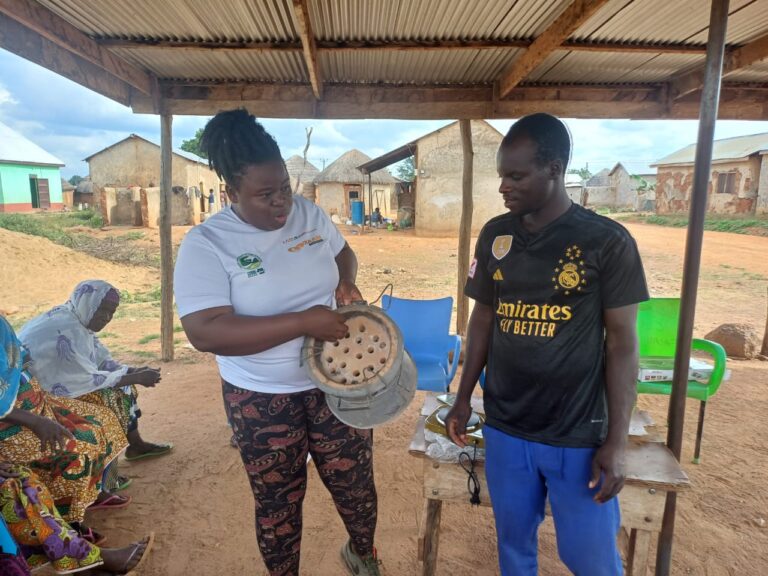
Objective: To promote the adoption of clean cooking solutions, reducing the reliance on traditional biomass fuels and mitigating the negative impacts on health, environment, and climate.
Key Components:
- Stove Distribution: Provide access to affordable, efficient, and safe cooking stoves.
- Fuel Alternatives: Promote the use of cleaner fuels, such as LPG, biogas, or electricity.
- Behavior Change: Educate and raise awareness about the benefits of clean cooking practices.
- Community Engagement: Involve local communities in the design, implementation, and maintenance of clean cooking initiatives.
- Monitoring and Evaluation: Track progress, identify challenges, and inform future interventions.
Renewable Energy in Communities and Agribusiness (RECA)
- PARTNERS: Network of Youth for Climate Action (NYCA)
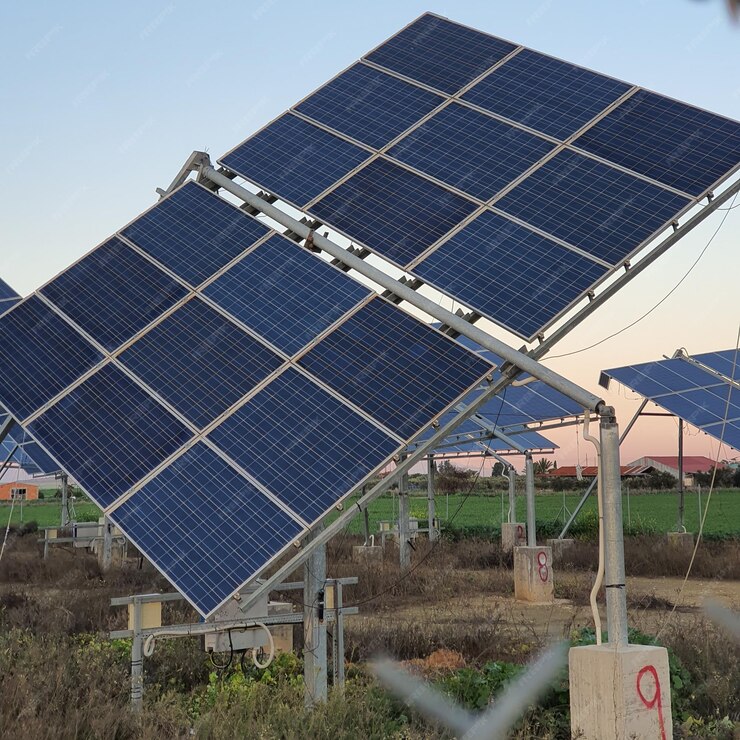
Through Advocacy programs in Communities and Agribusiness centers at urban and rural centers. Benefits of RECA:
- Cost Savings: Reduce energy costs and mitigate price volatility.
- Brand Enhancement: Demonstrate commitment to sustainability and enhance reputation.
- Risk Management: Reduce dependence on fossil fuels and mitigate climate-related risks.
- Compliance: Meet regulatory requirements and avoid potential penalties.
- Innovation: Drive innovation and stay competitive in a low-carbon economy.
Renewable Energy Options:
- Solar Energy: On-site solar panels or off-site solar investments.
- Wind Energy: On-site wind turbines or off-site wind investments.
- Biomass Energy: Organic matter converted into energy (heat, electricity, or biofuels).
By embracing renewable energy, businesses can reduce their environmental footprint, improve their bottom line, and contribute to a sustainable future.
Food Security and Agriculture
- PARTNERS: Communities, WVI, NYCA
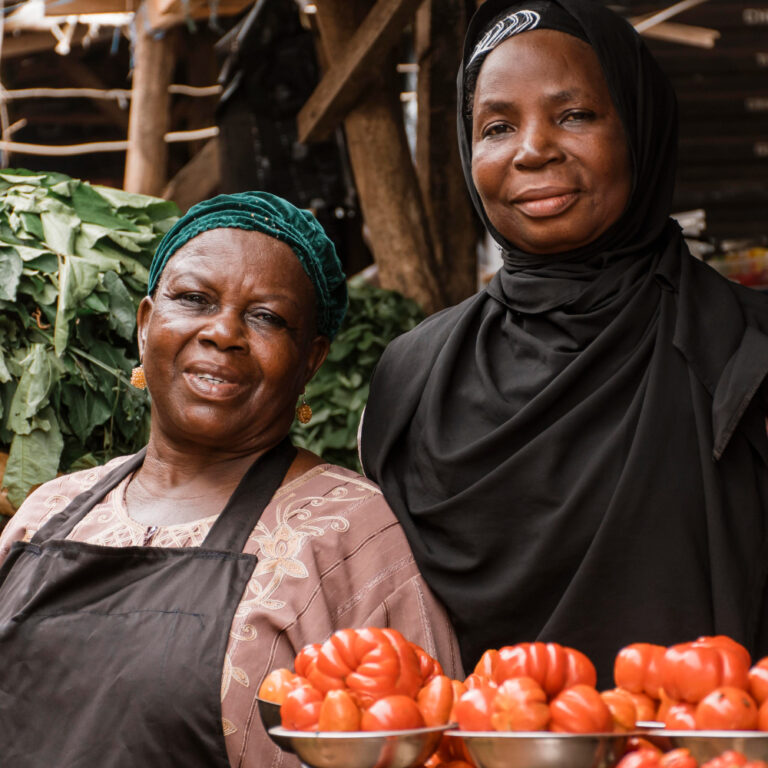
CAPACITY BUILDING TRAINING FOR FBOs ON THE PRODUCTION AND APPLICATION OF BIOCHAR ON FARM LANDS FOR IMPROVED CROP PRODUCTION
Food security has been on the decline over the years, and this has been attributed to various causes such as low soil fertility, water scarcity, and poor farm management practices. Majority of farmers, particularly those that operate on a small scale, have limited knowledge of soil and water management techniques that can support sustainable agricultural production.
To sustainably and progressively improve on crop yields or productivity, soil fertility and soil water retention should be enhanced. One of the surest technologies is the production and application biochar on farm lands.
Biochar is a solid carbon-rich product produced from biomass of agricultural crop residues, wastes, and wood, through pyrolysis in an oxygen-deficient condition. Carbon sequestration through biochar is important because of its potential applications in recycling wastes, retaining nutrients in the soil and lowering greenhouse gas emissions.

